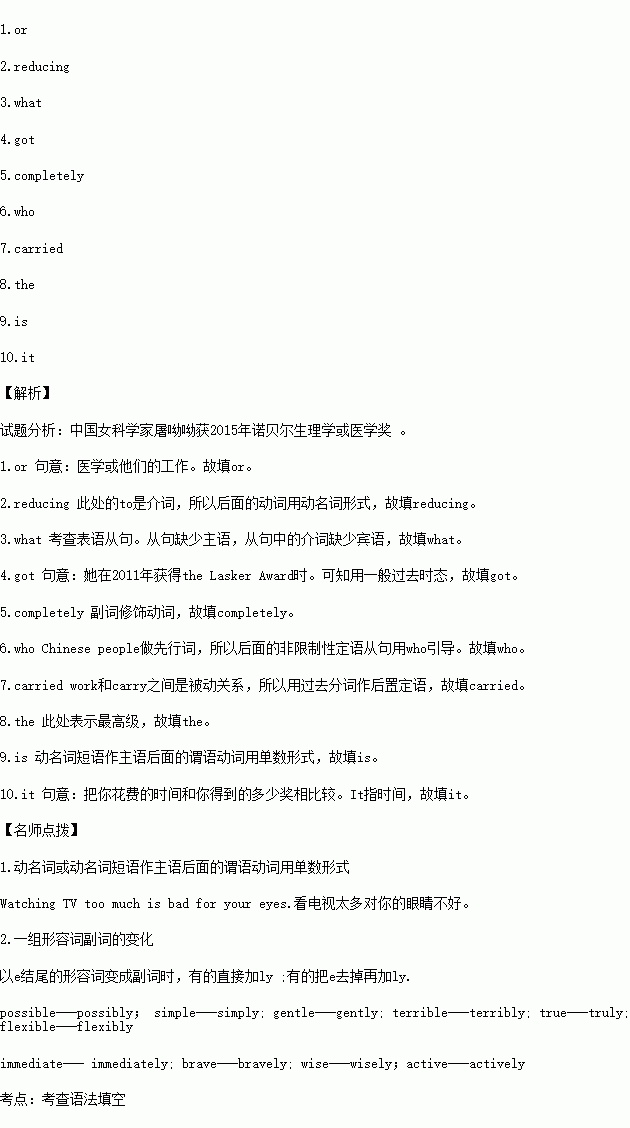题目内容
语法填空
William Campbell, Satoshi Omura and Tu Youyou jointly won the 2015 Nobel Prize for medicine_1._ their work against parasitic diseases (寄生虫病). 85-year-old Tu was awarded this prize for her contribution to_2._ (reduce) the death rate of malaria (疟疾), minimizing patients’ suffering and promoting mankind’s health. This is _3._ science is all about.
As a matter of fact, Tu has won some attention when she 4._(get) in 2011. But there is no way to compare her popularity back to the attention she is receiving today. As the first Chinese mainland Nobel Prize Winner of natural science award, Tu’s winning _5._(complete) surprised Chinese people, 6._have long been wondering when the first Chinese Nobel Laureate in natural science would appear.
Tu Youyou is the first Chinese scientist to win a Nobel Prize for work _7._ (carry) out within China. She has spent 40 years’ time on scientific research. Although the Nobel Prize did not come to her until four decades later, it is definitely one of _8._most privilege rewards that recognizes Tu’s devotion and perseverance in discovering artemisinin (青蒿素). Her record-breaking winning _9._ (be) a reminder that science is never about instant success. There is no way to measure how much you spend on scientific research and compare _10._with how much reward you get.
假如你是李明,是光明中学一名高二学生。你发现部分同学每次遇到重要考试,都会出现一些焦虑症状。请你用英语写一封信,向某学生英文报编辑反映该问题。信的内容应包括下列要点:
焦虑症状 | 建议 |
头晕、乏力、睡眠不好、食欲不振等 | 1. 考前制订合适的复习计划。 2. 考试期间正常作息。 3. 睡前洗热水澡、 喝热牛奶等有助于睡眠。 |
其他建议(内容由考生自己拟定) |
注意:1.根据以上内容写一篇短文,不要逐句翻译,可适当增加细节以使行文连贯。
2.词数:100左右。开头已给出,不计入总词数。
3.参考词汇:头晕dizzy.
Dear editor,
I am Li Ming,a Senior Three student in Guangming Middle School.I am writing to tell you
about some symptoms of anxiet y among us students before exams.
y among us students before exams.

